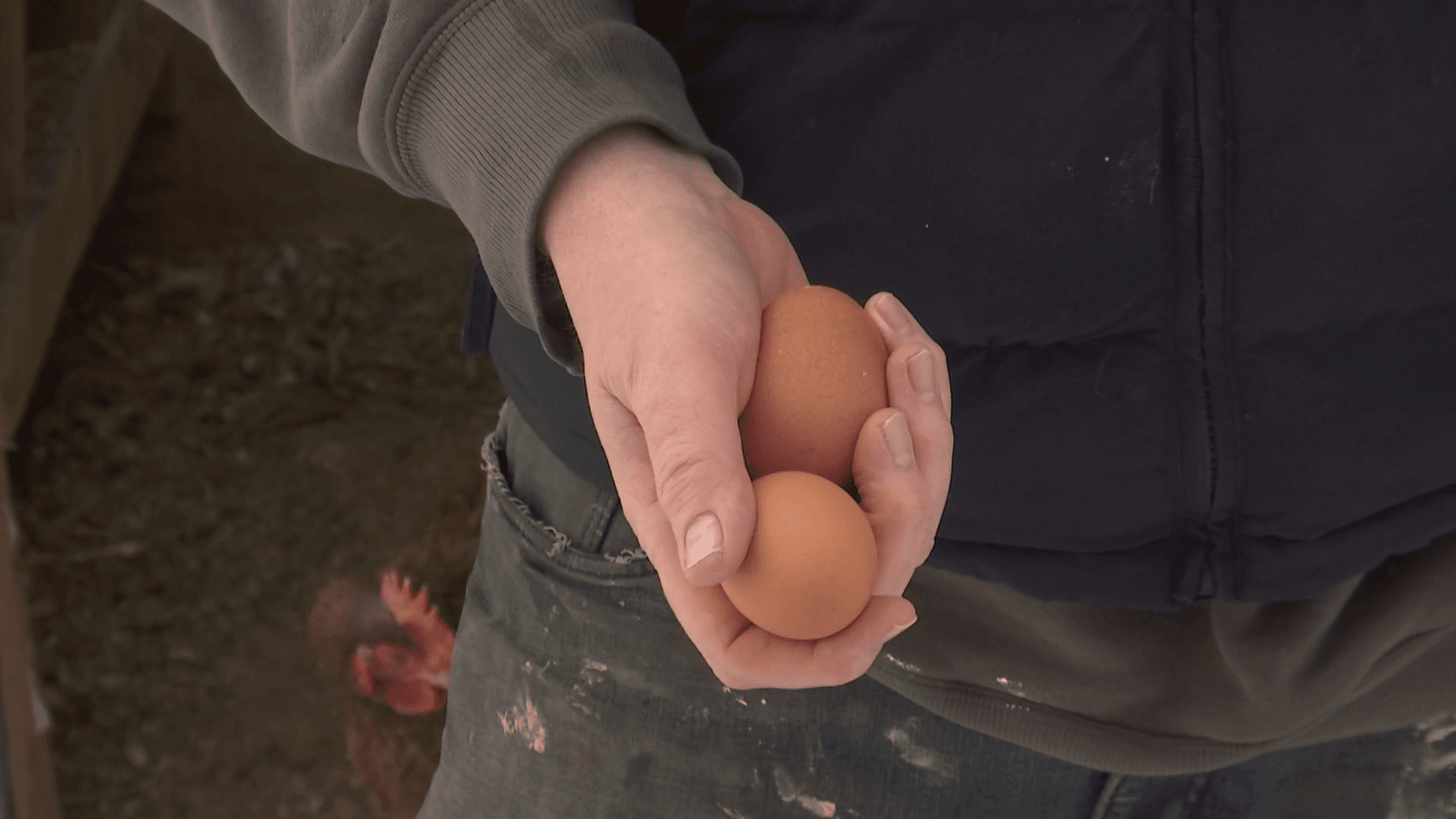Nationwide egg shortage is hurting local farmers in the Northland

There’s been a nationwide egg shortage, and now, it’s hitting our grocery store shelves in the Northland. One note found at a Duluth Super One location says they’re experiencing low stock levels and getting limited warehouse allocations. There are a lot of factors going into this egg shortage, but the bird flu is a big one.
There’s several farms in Northern Minnesota and Wisconsin produce eggs, Locally Laid is one of them. The Washburn farm is one of many agricultural businesses who are a victim to the nationwide egg shortage.
Jason Amundsen, the co-owner, says there’s roughly 20 chickens in their coop, one-fifth of their usual numbers during the summer.
“With bird flu, it’s been the wild card. That wild card, seems like it’s not going to go away anytime soon. So we’re having conversations about adding more barns,” Amundsen said. “But again, here we are in January 2025. The soonest we can get more eggs on a consistent basis wouldn’t be until the summer.”
U.S. egg production is down 4% year over year, with 3% fewer hens, according to latest data from a USDA report last month. The price of a carton has increased nationwide by around 38% in the last year, bringing the average cost of one dozen up to $3.65.
“Everything’s spiking in the egg industry and it’s just a function of supply and demand. There’s scarcity and that scarcity is, of course, driven by bird flu,” Amundsen said. “Birds only produce for about 14 months until they become unviable. The eggshell quality drops and it becomes very expensive to feed them. After that 14 month period, you have about a five or six week window where you have to repopulate the barn before you get more eggs.”
Amundsen says farmers in the Northland wouldn’t have a large enough supply to make up for the nationwide egg shortage seen in grocery stores.
“Wwe can’t turn on a dime and make new eggs. We can’t squeeze chickens and make them make more eggs. It just doesn’t work that way.”
The Locally Laid Egg Company says other farms in the Northland are taking a more conservative approach during this shortage by not changing their prices.